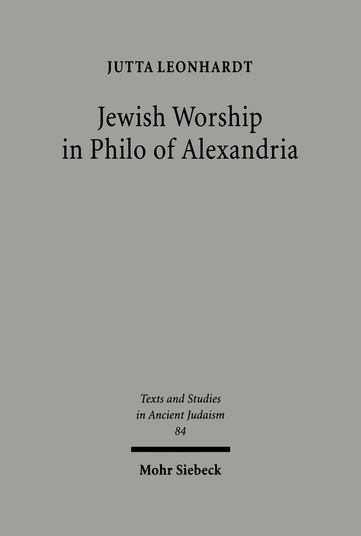Jewish Studies
Jutta Leonhardt
Jewish Worship in Philo von Alexandria
[Der jüdische Gottesdienst bei Philo von Alexandrien. Von Jutta Leonhardt.]
109,00 €
including VAT
including VAT
cloth
ISBN 978-3-16-147597-9
available
Also Available As:
Published in English.
As a knowledgeable contemporary of the later Second Temple, Philo of Alexandria's approach to worship and his view of the essence of Jewish worship are of particular interest to the study of that period. Jutta Leonhardt discusses his views on the Jewish festivals, especially the Sabbath, on prayer, psalms, hymns, praise and thanksgiving, and on Temple offerings, sacrifices and purification rites. These aspects are presented with their parallels in Jewish and pagan traditions and in Greek and Hellenistic philosophy. Jewish worship in Philo has never been studied as a coherent whole before. Only individual aspects of worship, such as prayer of petition, or thanksgiving, or Philo has been used in studies on Second Temple Judaism as a quarry for general examples of acts of worship.Philo accepted and participated in Jewish worship, and even knew about details of various Jewish traditions of his time. His writings, however, do not refer to them directly and cannot easily be used to reconstruct Jewish rituals of his time. His main aim is to discuss the rites as collected in the Mosaic Torah, since these are binding for all Jews. These laws are frequently presented using the terminology of pagan cults and interpreted with recourse to Greek philosophy. In this philosophical description of actual rites there are parallels to Plato's references to religion in the ideal state in the Nomoi. Philo presents Judaism as the ultimate Hellenistic cult, which combines the various aspects of the different pagan cults in a sublime and perfect form to represent mankind and the universe in the worship of the one God who created the world.
